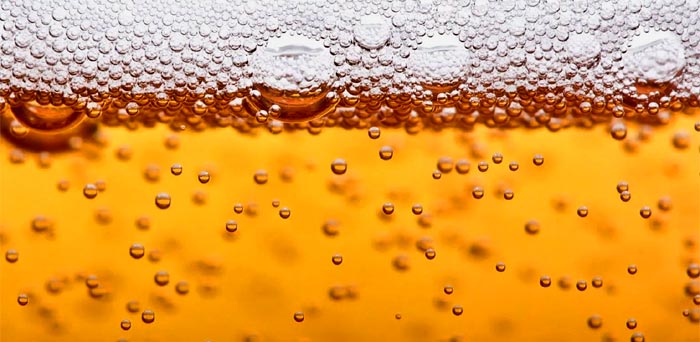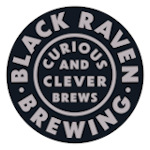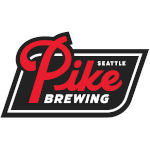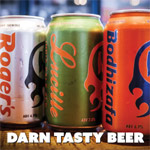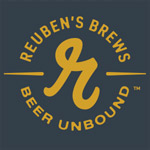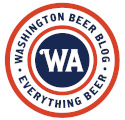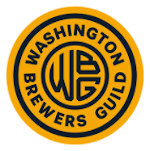CO2 production slows in the wake of Pandemic response
One of the things that makes beer such a valuable part of our economy is the length of its supply chain and the way it touches so many different industries on it’s way to retailers and consumers. On the highest level, the chain includes agriculture, manufacturing, sales and distribution, and transportation.
Along the way, beer mingles with countless tangential industries, like stainless steel fabricators who make brewing equipment, aluminum manufacturing companies that produce cans, artists and printers who producing packaging materials, and CO2 suppliers who keep the beer bubbly.
There is currently something of a crisis brewing with the nation’s CO2 supply. Some breweries are better equipped than others to navigate the situation. This is something we’ll discuss during a Facebook live chat with Pamela Brulotte of Icicle Brewing on Tuesday, April 21st at 5:00pm (pacific). Join us here.
A Weak Link
Like any chain, the beer supply chain relies on each link. Given the world’s current predicament with COVID-19, CO2 is suddenly an issue. Supplies are lower than normal, prices are creeping up, and quality is a concern. According to the Brewers Association, the trade organization representing America’s small and independent brewers, CO2 suppliers have increased prices by about 25% due to reduced supply.
Why? What’s the relationship between the pandemic and CO2?
In most circumstances, the CO2 used by breweries is not directly manufactured or mined. So where does it come from? CO2 is a byproduct of other industrial processes, like the production of ethanol, ammonia, and hydrogen. Ethanol production, in particular, is a major source of the world’s CO2 supply.
Here’s where there’s a bit of a leap. Ethanol has many uses, but primarily it is used in fuel mixtures. Most of the gasoline sold in the United States contains some ethanol. When we produce less gasoline, less ethanol is needed. Production of gasoline slows, production of ethanol slows, production of CO2 slows. The world is using a lot let gasoline right now. Hence, a lot less ethanol is being produced.
The CO2 resulting from these kinds of processes is distributed through compressed gas supply companies. Breweries use CO2 from these suppliers for things like carbonating the beer you drink, purging oxygen from vessels before filling them with beer, and so on.
According to the Brewers Association, about 45% of the CO2 used by craft breweries comes from ethanol producers. That is, the compressed gas suppliers that deliver CO2 to breweries get it from ethanol production facilities. The pandemic has caused gasoline consumption and gasoline production to plummet. Along with it, the production of ethanol. Many ethanol producers have idled their facilities leading to a reduction in CO2 production.
Breweries don’t just need CO2, they need good, clean CO2. As production slows, quality is a concern. The suppliers who provide the gas to the breweries will source it wherever they can to meet demand, but not all CO2 is created equal.
The Brewers Association explains it like this: “a supply shortage in one industry may result in new feed gas sources for carbon dioxide; contaminants and quality can vary based on those sources. Because freight costs can be high, CO2 supplies are customarily relatively local to their customers, and diverse sources are constantly being evaluated for sustainable supply reasons. CO2 manufacturers should routinely test feed gas sources for compositional changes, as well as monitor the quality throughout the production process. Storage and trans-fill depots should also have purity monitoring systems to screen incoming lots for quality.”
Want to know more about the relationship between CO2 supplies and beer? Check out this resource on the Brewers Association website.
The beer industry is not alone. A coalition of concerned industries, led by the Compressed Gas Association, recently sent a letter of concern to Vice President Pence to express concern that the current pandemic creates a significant risk of a shortage in CO2. This reaches far beyond beer. CO2 is vital in many production processes related to the food supply chain.
But this is a beer blog, so we’ll maintain our focus.
As it is in ethanol production, CO2 is a byproduct of beer production. The fermentation process creates CO2. In most cases, the CO2 is not harvested and simply escapes into the air. If you’ve toured breweries, you may have noticed big hoses coming out of fermenters and into buckets of bubbling water. That’s CO2 escaping into the atmosphere.
There are systems designed to capture and refine the CO2 produced by fermentation and other brewery processes. It’s one of the ways a brewery can reduce its carbon footprint and improve sustainable manufacturing practices. Now, suddenly, it seems a matter of resilience and self-reliance.
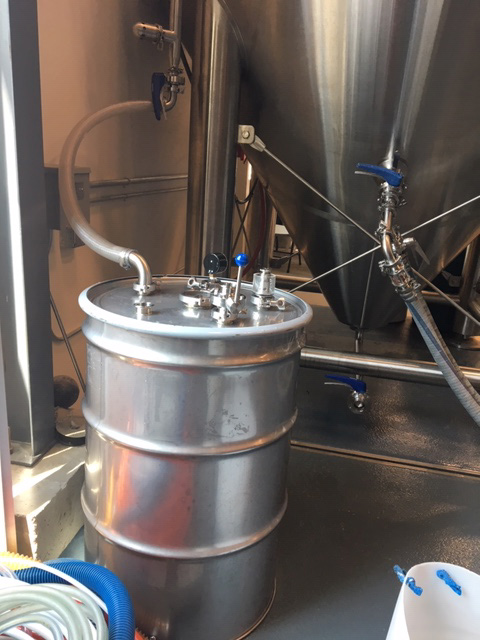
It isn’t exactly new technology. Major breweries (the big ones that advertise during the Super Bowl) typically have systems to capture and refine the CO2 produced during fermentation and beer production. Until recently, these were high-capacity, multimillion-dollar systems, beyond the reach of craft breweries. (When it was still open, the large Redhook facility in Woodinville used a CO2 recovery system.) Today a number of manufacturers offer systems suitable for smaller breweries.
One such system from Earthly Labs is currently in use at Icicle Brewing in Leavenworth, Washington. As we reported last June, the system was installed at Icicle Brewing’s newly constructed production brewery.
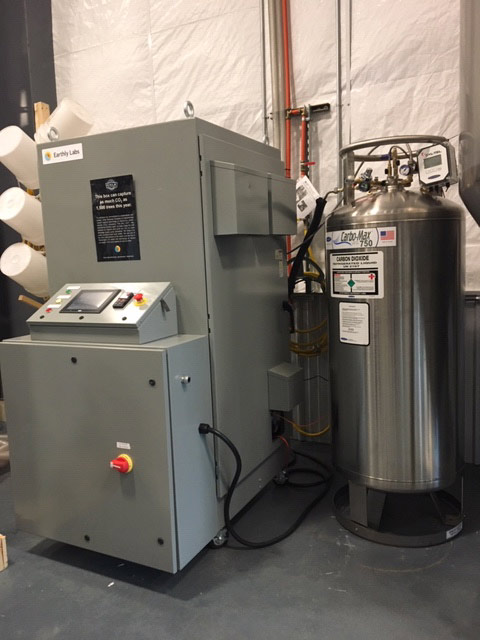
Installing a CO2 recovery system is kind of like planting a new forest. Trees absorb CO2 from the atmosphere and produce oxygen. (Remember high school biology?) The system that Icicle Brewing installed is capable of reducing CO2 emissions equivalent to 400-1600 trees planted per year.
As far as taste goes, some might say that all CO2 (a carbon atom bonded to two oxygen atoms) is all the same regardless of its origin. Others suggest that CO2 produced by fermentation actually tastes better.
CO2 and the Planet’s Health
Obviously, if the CO2 used to carbonate beer is linked to the burning of fossil fuels, that’s something that rightly concerns environmentalists, but It’s not just beer. CO2 is used in countless processes and industries, some very obvious like the beer and soft drinks, others not so obvious like metal production, water treatment, and pharmaceutical manufacturing.
What if the production of CO2 was not tied to the production of ethanol or anything else? What if the production of CO2 was instead tied to reducing the greenhouse gases in our atmosphere. Game changer, right?
Climeworks, a company in Switzerland, is working on capturing CO2 out of the air. This was once considered impossible, or at least cost-prohibitive, but Climeworks is making it a reality. The company developed a machine that captures CO2 out of the air using filters. The CO2 is then harvested from the reusable filters. The technology is promising and advancing rapidly, attracting the attention of companies like Coca Cola, which signed a limited partnership with Climeworks last year.
Learn More
Join me on Facebook tomorrow for a happy hour chat with Pamela Brulotte of Icicle Brewing as we discuss, among many other things, this cool technology from Earthly Labs. Icicle Brewing has one of their systems installed and in use. Beer is always relevant, but right now this technology seems particularly relevant.
We’ll go live on Facebook on Tuesday, April 21st at 5:00 pm. Can’t make it live? No worries, the video will be there in perpetuity.
https://www.facebook.com/washingtonbeerblog

